[vc_row][vc_column width=”1/1″][vc_single_image image=”4280″ border_color=”grey” img_link_target=”_self” img_size=”full”][/vc_column][/vc_row][vc_row][vc_column width=”2/3″][vc_column_text]
Mates Project
MATES. Multi Agency Training Exit Strategies for radicalised youth.
Recently, European countries have witnessed a stunning growth of youth radicalised to terrorism. Radicalisation mechanisms seem to be common to all countries and many recent studies have shown the impact of prison environment on the radicalisation process. In most recent years, however, the Justice systems of many EU countries have gradually shifted their attention from recruitment to the rehabilitation process of individuals sanctioned or convicted for radicalisation crimes – from in-prison to out-of-prison radicalisation processes. The rehabilitation of these youth, either in jail or in probation, is, in fact, increasingly acknowledged as an extremely complex phenomenon that deserves special attention as well as a multiple-skills approach.[/vc_column_text][vc_accordion collapsible=”yes” active_tab=”false”][vc_accordion_tab title=”Mates Aims”][vc_column_text]
How to devise a truly efficient exit strategy (probation measures or alternative sanctions) for these youth – a strategy that can be effectively reintegrating the individual in the local society and that avoids risks of re-radicalisation – is a question that raises a number of issues and still needs appropriate responses.
Among them, an efficient probation entails a strong interaction between the Justice System and the key actors responsible for the youth’s social rehabilitation at local level. In order for the probation to be truly effective it is therefore necessary to firstly build or reinforce a network of social actors with a shared approach to the reinsertion of radicalised youth.
MATES project will result in the following major deliverables: i) National desk reports; ii) Common curricula/e-Training toolkit, resulting from the involvement of key stakeholders at national and transnational level as well as focus groups and interviews carried out; iii) Guidelines for probation officers and frontline practitioners.
[/vc_column_text][/vc_accordion_tab][vc_accordion_tab title=”Approach”][vc_column_text]MATES project will develop a training method that aims at providing probation officers as well as first-line practitioners (FLP) with enough capacity and understanding to recognise early signs of radicalisation, contrast potential re-radicalisation and indirectly prevent risks of recruitment to terrorism.
Collaboration with and among probation officers, local social workers, community leaders, staff of education agencies, youth sporting clubs will then focus on engaging with youth as to change their negative perceptions of state and society, help them to establish new social networks away from extremism, provide vocational training, sports coaching, fitness training, art, etc. as a means of creating a regular interaction and promoting peaceful coexistence.
The project major aim will be to train probation officers for a more efficient reinsertion of the youth convicted for radicalisation to terrorism.[/vc_column_text][/vc_accordion_tab][/vc_accordion][posts header=”Notícias Mates España” post_type=”post” cats=”mates-es” images=”false” image_width=”383″ image_height=”170″ image_wrap=”false” hard_crop=”true” cols=”1″ per_page=”3″ offset=”0″ link=”both” pages=”true” orderby=”date” order=”desc” content_display=”excerpt” excerpt_length=”250″ read_more=”true” title=”true” title_length=”500″ meta=”true” meta_author=”true” meta_date=”true” meta_cats=”false” meta_tags=”false” score=”true” spacing=”spacing-normal”][vc_column_text]
Spanish Team
MATES involves research teams from 6 different organisations of all of Europe:
- IPRS – Psychoanalytic Institute for Social Research, Italy;
- “La Sapienza” University of Rome, Dept of Criminology, Italy;
- CJD-Hamburg, Germany;
- Catholic University of Porto, Portugal;
- Autonomous University of Barcelona, Spain;
- Tartu University, Estonia;
- EJJO, European Juvenile Justice Observatory, Bruxelles.
Spanish Team members are:[/vc_column_text][vc_accordion collapsible=”yes” active_tab=”false”][vc_accordion_tab title=”Zyab Ibañez”][vc_column_text] Zyab Ibañez is a Postdoctoral Researcher at the Institute of Government and Public Policies (IGOP) of the Universitat Autònoma Barcelona. He holds a PhD in Political and Social Sciences from the European University Institute, Florence 2007, and an MSc in Environmental Assessment from the London School of Economics. His research combines cross-national institutional analyses and organizational case-studies to explore how different institutional regimes shape the design and implementation of public policies in the areas of employment, working-time and migration. As a researcher, he has been involved in several EU and National funded projects, such as RECWOWE and Mobile Identities. Currently he is part of the IGOP team undertaking the project: Promoting Youth Involvement and Social Engagement (PROMISE), a major EU funded research project, under the European Commission’s Horizon 2020 Research and Innovation Programme, running from May 2016 to April 2019.[/vc_column_text][/vc_accordion_tab][vc_accordion_tab title=”Margarita León”][vc_column_text]
Zyab Ibañez is a Postdoctoral Researcher at the Institute of Government and Public Policies (IGOP) of the Universitat Autònoma Barcelona. He holds a PhD in Political and Social Sciences from the European University Institute, Florence 2007, and an MSc in Environmental Assessment from the London School of Economics. His research combines cross-national institutional analyses and organizational case-studies to explore how different institutional regimes shape the design and implementation of public policies in the areas of employment, working-time and migration. As a researcher, he has been involved in several EU and National funded projects, such as RECWOWE and Mobile Identities. Currently he is part of the IGOP team undertaking the project: Promoting Youth Involvement and Social Engagement (PROMISE), a major EU funded research project, under the European Commission’s Horizon 2020 Research and Innovation Programme, running from May 2016 to April 2019.[/vc_column_text][/vc_accordion_tab][vc_accordion_tab title=”Margarita León”][vc_column_text] Margarita León is Professor of political science at the Autonomous University of Barcelona. Of the 2010 to 2015 He was a researcher in the Ramón y Cajal Institute of Government and public policy (IGOP) of this University. He has been Professor of comparative public policy at the University of Kent (2004-2010) and Marie Curie researcher at the European University Institute of Florence. He received his Ph.d. at the London School of Economics with a grant from the V framework programme of the European. Account in addition, with a master’s degree in Sociological Research by the University of Essex (1995) and a Bachelor’s degree in Sociology from the University of Alicante (1994). He has published articles in numerous journals of international impact ’. Is co-editor along with Ana M. Guillén of the book The Spanish Welfare State in European Context (Ashgate, 2011) and editor of The Transformation of Care in European Societies (Palgrave, 2014). His main areas of research are comparative public policy and the reform of the ’ welfare State. He is a member of the Executive Committee of the European social Policy Network (ESPAnet) and of the Spanish network of Social policy (REPS).
Margarita León is Professor of political science at the Autonomous University of Barcelona. Of the 2010 to 2015 He was a researcher in the Ramón y Cajal Institute of Government and public policy (IGOP) of this University. He has been Professor of comparative public policy at the University of Kent (2004-2010) and Marie Curie researcher at the European University Institute of Florence. He received his Ph.d. at the London School of Economics with a grant from the V framework programme of the European. Account in addition, with a master’s degree in Sociological Research by the University of Essex (1995) and a Bachelor’s degree in Sociology from the University of Alicante (1994). He has published articles in numerous journals of international impact ’. Is co-editor along with Ana M. Guillén of the book The Spanish Welfare State in European Context (Ashgate, 2011) and editor of The Transformation of Care in European Societies (Palgrave, 2014). His main areas of research are comparative public policy and the reform of the ’ welfare State. He is a member of the Executive Committee of the European social Policy Network (ESPAnet) and of the Spanish network of Social policy (REPS).
More info: https://uab.academia.edu/MargaritaLeon[/vc_column_text][/vc_accordion_tab][vc_accordion_tab title=”Clàudia Torres Ferrer”][/vc_accordion_tab][vc_accordion_tab title=”Jaume Badosa”][/vc_accordion_tab][vc_accordion_tab title=”Joan Subirats”][/vc_accordion_tab][/vc_accordion][/vc_column][vc_column width=”1/3″ css=”.vc_custom_1487684437608{background-color: #cecece !important;}”][vc_column_text]MATES
Funding body: EU Commission – DG Home Affairs – Internal Security Fund Police (2014-2020).
Grant procedure HOME/2015/1SFP/AG/LETX – Law enforcement Training[/vc_column_text][vc_separator color=”grey”][vc_column_text]
Partners
CJD-Nord (Germany)
Universidade Católica Portuguesa (Portugal)[/vc_column_text][vc_separator color=”grey”][/vc_column][/vc_row]












